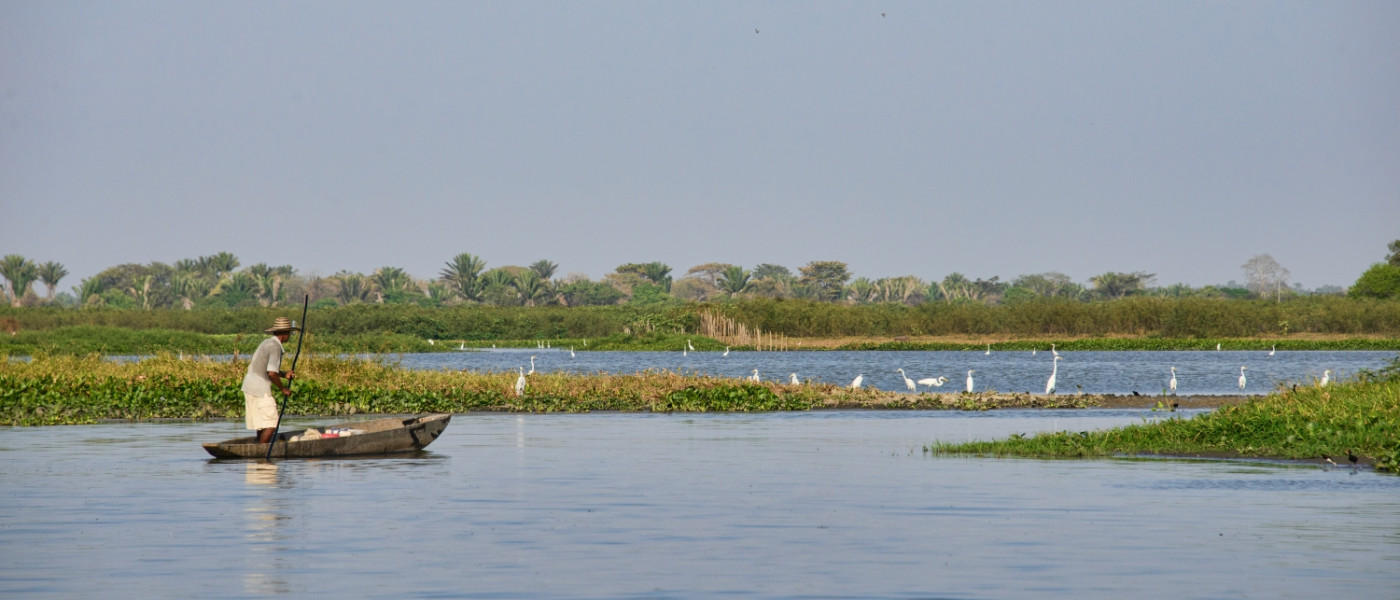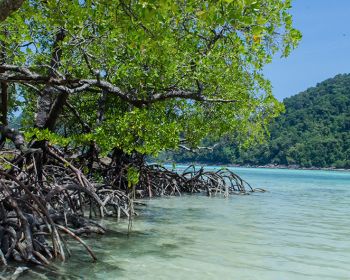Some provisions of the Global Biodiversity Framework aim to catalyse this action by businesses and financial institutions, in particular by fostering :
- Better recognition of the importance of biodiversity in investments and financed assets and strengthening of skills at various levels of the organisation, with a view to more systematic consideration of biodiversity in strategic decisions and operational policies;
- Analysis of nature-related dependencies, impacts, risks and opportunities (DIROs), development of nature-related transition plans to reduce negative impacts and risks, strengthening positive impacts and promoting opportunities, and their public reporting (this is also the subject of the voluntary framework of the Taskforce on Nature-related Financial Disclosures – TNFD – and the regulatory framework of the European Union “Corporate Sustainability Reporting Directive” – CSRD);
- Implementation of technical solutions or industrial practices to reduce the company’s contribution to the factors impacting biodiversity (reduction of pollution, green infrastructure, etc.);
- Implementation of financing solutions for activities contributing to the protection, restoration and sustainable use of biodiversity (for instance, in regenerative agriculture, sustainable forest management, protection of coastal ecosystems, etc.);
- Support for the development and financing of nature-based solutions, defined as economically sustainable activities that are beneficial to biodiversity, contribute to climate change mitigation and adaptation, and underpin the economic and social development of communities.
To support this transition, the Global Biodiversity Framework highlights the importance of public-private dialogue and the implementation of joint solutions. It also commits CBD signatory countries to reform their regulatory, fiscal and financial incentives to better promote activities that contribute to the protection and restoration of biodiversity, and to reduce incentives for activities that contribute to its degradation, while ensuring an environmentally sound and economically and socially equitable transition.
Noteworthy regulatory developments in the European Union
In the European Union, several recent regulations aim to take greater account of issues relating to environmental and social sustainability in business strategies and investment decisions. Among them, the CSRD (Corporate Sustainability Reporting Directive) aims to harmonise and strengthen the analysis and publication of corporate sustainability data in Europe (updating the previous Non-Financial Reporting Directive, NFRD, of 2014). Having come into force at the beginning of 2023, it introduces reporting requirements on several aspects, including biodiversity and natural capital, with an initial public reporting deadline for large companies in 2025 for the 2024 financial year. In addition, the European Union Regulation against Deforestation and Forest Degradation (EUDR) requires enhanced due diligence measures for companies that market products that may be linked to deforestation, focusing on products containing beef, soy, cocoa, coffee, palm oil and timber. Its application was scheduled to start on 30 December 2024, but the European Commission recently announced its possible postponement until the end of 2025 to allow the companies concerned and the commodity-producing countries to adapt to the new situation.
BNP Paribas’ action in favour of biodiversity
In 2021, BNP Paribas published its position on natural capital and biodiversity, so expressing its commitment to preserving biodiversity through its financing, investments and operations.
What does this mean in practical terms?
BNP Paribas has implemented a number of measures within the Group aimed at reducing the impacts on biodiversity in its financed portfolios and fostering activities that help protect and restore nature, in particular:
- Inclusion of criteria relating to biodiversity in financing and investment policies since 2012, primarily in the main sectors exposed to the risk of deforestation and natural habitat conversion (agriculture, palm oil, paper pulp, mining, oil/gas). In addition, given that more than 40% of tropical forest loss is linked to the exploitation of agricultural commodities in Brazil, particularly in the Amazon and Cerrado regions, BNP Paribas has committed to encouraging its clients that produce or buy beef or soy from these regions to move towards “zero deforestation” and to transparently demonstrate their progress. As a result, BNP Paribas will only provide financial products or services to companies (producers, meat conditioners and traders) with a strategy to achieve zero deforestation in their production and supply chains by 2025 at the latest.
- Constructive dialogue with clients on this topic, and supervision of credit and investment activities, especially in the most sensitive sectors;
- Proposals for products and services (e.g. bond issues or credits linked to biodiversity-related targets) in order to actively help clients finance their efforts to preserve and restore biodiversity;
- Directing investments towards funds aimed at preserving biodiversity;
- Signing of Act4Nature commitments in 2018 (updated in 2021);
- Publication of a Position on Ocean Protection in 2020, and search for investments dedicated to the ocean theme, such as the recent partnership signed with Blue Alliance to reconcile the improvement of marine protected areas with the economic and social development of communities;
- Extension to biodiversity of research programmes supported by the BNP Paribas Foundation (Climate & Biodiversity Initiative);
- Work undertaken on the analysis and measurement of the footprint of its investments in respect of biodiversity, in particular for BNP Paribas Asset Management and BNP Paribas Cardif.
"BNP Paribas Asset Management published its biodiversity roadmap in 2021 [updated in 2024] and has set ambitious targets to reduce the impact of investments on biodiversity and to integrate biodiversity issues into its business engagement activities. At COP15 of the CBD, BNP Paribas Asset Management participated in the launch of the Nature Action 100 initiative, promoted by a group of NGOs and investor initiatives, aimed at promoting a high level of corporate ambition to support the protection and restoration of nature."
Focus on the case of the horseshoe crab
Since 2022, BNP Paribas Asset Management has been committed to protecting the horseshoe crab, an ancient species of marine arthropod whose blood is used for laboratory testing. Virtually every vaccine, injectable drug, and medical device implanted in the human body worldwide has been tested on a component of horseshoe crab blood. Partly due to this exploitation of the species for biomedical purposes, horseshoe crab populations are in decline. However, there is a synthetic alternative on the market that is just as effective as horseshoe crab blood. BNP Paribas Asset Management has written to 14 pharmaceutical companies based in the United States, Europe and Asia, to encourage them to switch to the widely approved synthetic alternative.
To organize its actions and understand their impacts, the Group refers to the pressures on biodiversity listed by the IPBES in its 2019 report, and mainly the first four: changing use of sea and land, direct exploitation of organisms, climate change and pollution.
In addition, the Group is implementing cross-functional measures, in particular to improve knowledge of impacts and means of monitoring and action: support for research and development, targeted partnerships, participation in working groups and industry associations, awareness-raising among internal and external stakeholders.
"This analytical framework makes it possible to rely on concrete and diversified indicators, which clearly reflect the multiplicity of issues in preserving biodiversity."
Camille Maclet Biodiversity Expert, CSR Department of the BNP Paribas Group



